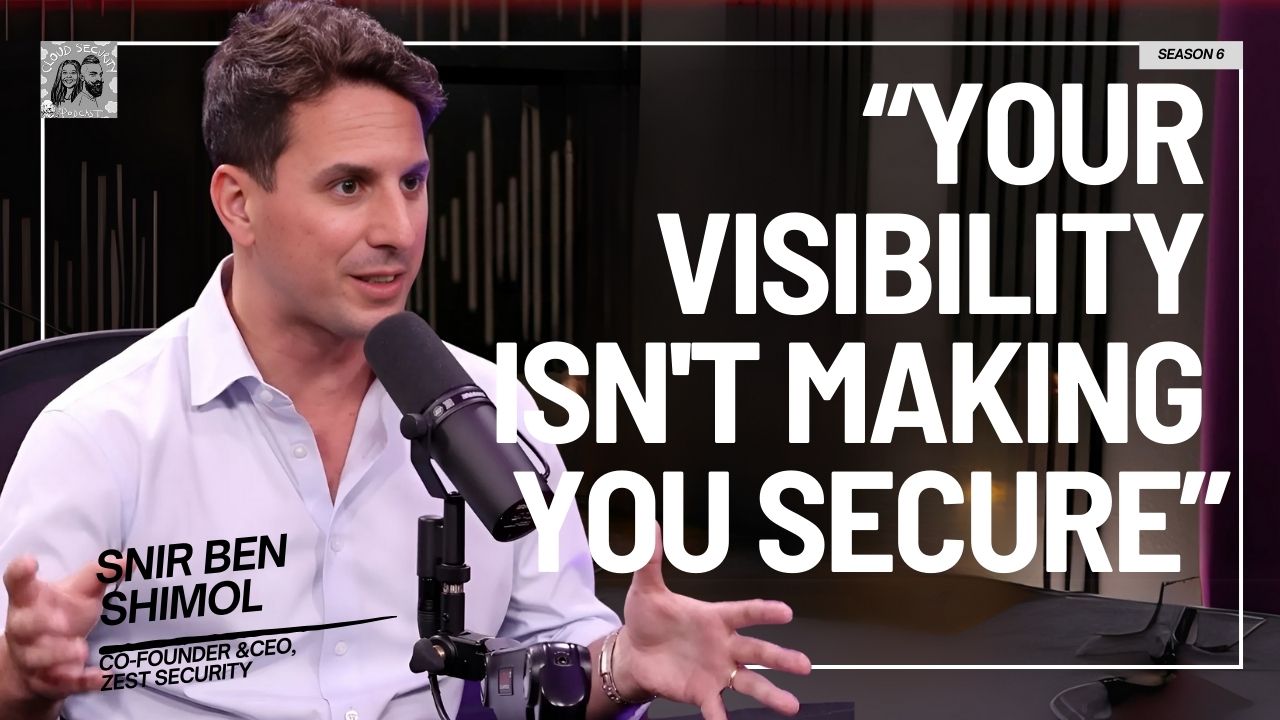Episode Description
What Hacker Valley Studio discussed:
- 00:00 Introduction
- 03:25 What is ExIST Framework? Explore (ExIST Framework “E”)
- 08:43 Immerse (ExIST Framework “I”)
- 09:36 Threat Intelligence Concepts
- 10:11 Five Books of Stupid
- 13:58 Study (ExIST Framework “S”)
- 22:24 Translate or Transform (ExIST Framework “T”)
- 31:42 Questions
- And much more…
THANKS, Hacker Valley Studio!
If you enjoyed this session with Hacker Valley Studio, let him know by clicking on the link below and sending her a quick shout out at Twitter:
Click here to thank Hacker Valley Studio at Twitter!
Click here to let Ashish know about your number one takeaway from this episode!
And if you want us to answer your questions on one of our upcoming weekly Feedback Friday episodes, drop us a line at ashish@kaizenteq.com.
Resources from This Episode:
- Tools & services, discussed during the Interview
Ashish Rajan: I’m going to bring them on. Hey, Chris,
Chris Cochran: glad to be here. We’re taking over. We’re going to kick you out of here soon. I
Ashish Rajan: know. I feel like this was, was a first time, a nervous moment. The butterflies in my stomach and everything’s going on. I’m like, hopefully this doesn’t go out. It’s done out to be like a fire set inside the studio where they will hopefully.
Or in my cafe, I guess, in the background. But I mean, like for, for people who don’t know, you guys would love to start with the intro and what’s going to happen is I’m going to go into the background and you guys are gonna take over the show. So if you guys want to quickly introduce yourself and just like blend into the bag,
Chris Cochran: For sure.
Yeah. I’m Chris Cochran. I’m one half of the hacker valley studio podcast by day. I’m a director of security engineering at a financial technology company. And I’m always joined by my awesome best friend, Ron. Yes,
Ronald Eddings: sir. I appreciate the best friend and just being your partner in crime. Ron Eddings here, the other half of hacker valley studio podcasts, also security practitioner by day podcaster by night on the weekend.
Doesn’t matter. [00:01:00] Love podcasting.
Ashish Rajan: So I’m going to go into the background and you guys take over. You think we got it?
Chris Cochran: All right. All right.
How can we destroy this man show immediately? Now we have 30 minutes to do it. No, we’re going to talk about one of my favorite topics to talk about. We’re going to talk about actually a couple of topics. We’re going to talk about threat intelligence, and we’re going to talk about security architecture, but we’re going to talk about it in the framework of our exist framework.
What was the exist framework?
Ronald Eddings: Exists is a framework to help you pursue any endeavor. It can be used to learn, especially new concepts in cybersecurity, but you can even use this framework outside of cybersecurity and exist is an acronym. The E X is flow is for explore the, I is for immerse, the S for study and the T is
Chris Cochran: for training.
Yeah, it’s we, you know, the way this even came about Ron and I, we do think weeks about twice a year and we were on a COVID think week, basically my house. Usually we go to a [00:02:00] nice remote location, bill gates. But this time we were just hanging out in my garage and we were sitting and thinking about strategy strategy for how we’re going to take our show to the next level, how we’re going to take our company to the next level.
And. Give back, give information, give frameworks that people can use. I’m sure a lot of you are familiar with the easy framework that we developed for threat intelligence, but we wanted to make something that was more applicable to a larger swath of people. So we came up with the ExIST framework and really it’s all about discovering those other worlds in humanity because we will.
Each subject has its own world. It has its own vernacular. It has its own characters and different things about it. That makes it interesting to different people. And we can use this framework to explore the world of cybersecurity. So for me, the explore really happened when I was in the United States Marine Corps.
I had this background and philosophy and it, and I use that framework. To discover different things that were interesting to me. And so I [00:03:00] got into intelligence, the ability to use that argument and logic to come to assessments or predictions about threats that are happening in the world. And so I found that fascinating.
And sometimes when you do that, explore, it hits you like a tuning fork and it just vibrates. But sometimes it’s a slow burn. We might start doing something when we’re young and we just keep at it over and over and over again. And we discover that we actually enjoy it once we get to an appreciable level.
But that explore is really what it’s all about. Some people forget the fact. But there are other worlds out there. Some people forget the fact that once you get a cybersecurity, you might be doing one thing, but there are so many other things that you can do in cybersecurity, and you can explore those worlds too.
So, Ron, how did you explore the world of security
Ronald Eddings: architecture? Well, I’m constantly immersing myself into this framework day in and day out. And when you’re a security architect, the most important phase. And this framework that you can be in as explore, [00:04:00] you have to constantly be exploring new topics of security and constantly be following this framework on down until you are translating all that information that you know, into security controls or security policies or guidelines, but what I’m doing and what I’ve always done as a security architect is constantly learn.
I’m constantly on YouTube. Just kind of looking at what topics are being discovered out there. What are the reports? What is the research? Where are the new exploits that are happening? How can I protect an organization against those things? Reddit, another great place to explore information.
There’s always new topics under the forward slash net sec sub Reddit. So I love to spend time there and also time on LinkedIn time doing these lives. Just by way of talking to you, Chris, and even Ashish, I get to learn new things that I wouldn’t have otherwise learn. I get to explore those topics without really committing and going
Chris Cochran: too deep in them.
Exactly. I mean, that, that Explorer is all about [00:05:00] the testing. The just nibbling you’re you’re at a buffet, you try a little bit of everything just to find out what really sits with you really well. And the same thing is even in the. The nuances of each one of our kind of our wheelhouse. So I came from threat intelligence, even though I’m doing a much larger piece of the cybersecurity pie now, but in threat intelligence, there’s small little pieces that you can get into.
You could be at the strategic level of threat intelligence, where you’re looking at the geopolitical aspect of intelligence and the threats that affect. Countries and complete industries, or you could go down a level to the operational where now you’re looking more at ABTS, you’re characterizing what they do, what are they targeting?
Where do they was their intent? And if you go down even further level, you get to that either tactical or technical level where you’re supporting incident response, you’re, you’re sitting there. You’re where the meat meets the road and you’re doing the things that. Supports additional operations.
So you might [00:06:00] be in an incident and you might be looking up a attacker infrastructure. You might be trying to figure out what that binary is for the incident responders. There’s so many different aspects within each of the fields of cybersecurity. And especially if you’re trying to expand out into something.
Ronald Eddings: And you know what the best thing is about both of these topics that we’re talking about is that they are so interconnected. And when we look at this next part of the exist frameworks framework, it’s immerse, and whether I’m practicing as a security architect, And one of the things I have to immerse myself in is threat intelligence, threat intelligence, supplies, those security controls with information about how to protect against that organization.
Threat intelligence might let me know which hashes are malicious. If this hash is seen on a server, I have to. Stop detected and respond or remediate to this threat. All of that information is supplied by threat intelligence. I have to immerse myself constantly in threat [00:07:00] intelligence. I’m not necessarily studying for it as hard as I’m studying like security architecture as a whole, but it is one of those topics that I do have to immerse myself in.
And I’m sure it’s the same for you with security.
Chris Cochran: For sure. When it comes to threat intelligence, really understanding what your security posture is, allows you to make better assessments. And it tells you that whenever an emerging threat happens, what is our security posture look like? What architecture is in the way to block that specific vector.
Because if you don’t understand that you can still give him. That will be actionable, but it could be even more actionable if you know, things that are not going to get caught by your security solutions. So really getting tight with the security architects from a threat intelligence perspective is super, super important.
One thing I want to talk about with immersion is one of my favorite favorite concepts from a book called art of the impossible by Steven Kotler. And one of these concepts is called the five books of stupid nah, I don’t understand why he calls him stupid because I think it’s brilliant. But what [00:08:00] he does is he takes, whenever he’s going to go into any world, any facet of research that he’s going into, and we can do the same in cyber security, we can do the same and really any subject that we’re interested in, which what he does is he takes five.
That first book is the best book in whatever subject that you’re trying to learn. And it’s all about exposure. It’s about that immersion. It’s not so much about studying when you’re taking notes, you’re not taking notes about, you know, oh, I got to look this up or I got to research this. It’s all about what excites you about the topic.
So if you’re taking up a book on. Cloud security. Maybe you’re looking at configurations and you’re like, wow. You know, really all of the power is in the configurations of these solutions. So I’m excited about configurations. I’m going to write it down or maybe you’re thinking about defense in depth. Oh, defense in depth is so fascinating.
It’s like a game of tower defense. Let me set everything up in that fashion. And I’m interested in that. I’m going to write that down. So remember that first book is [00:09:00] all about having fun. All about enjoyment. And then that next book is still going to be about enjoyment, but it’s going to be a little bit more on the nose about the subject matter, but still thinking about the main components of whatever it is that you’re looking for.
That third book is going to be a little bit more technical. It’s going to be, what are the main things that somebody in this craft would need to know? If you go into that next book, which is book number four, this is probably the most technical book that you have. This is the book where experts are talking about the problems.
So if I got a book on threat intelligence, what are some of the issues that I’m going to run into some of the compliance and the, the privacy. That have been great for protecting people can actually hinder intelligence to some degree. I’m sure a lot of you that have done intelligence before. If you’re looking at IPS or you’re looking up domains and you see information missing because of things like GDPR, that that can hinder investigations to some degree.
So understanding the issues of [00:10:00] each one of the problems that you would face in a given your subject is going to be super, super important. And then finally that fifth book, that book is going to be all about the future of whatever that is. So if you’re in security architecture, what is the future of security architecture look like?
Is it going to be more in the cloud or is it going to come back on prem? Because we know it’s definitely a give and take was old is new again. So whenever you’re going through all of these books, you read them end to end. Making sure you write down all the things that you find interesting. And by the end of that fifth book, you will have the vernacular.
You have an idea of that subject to more of a, a degree than most people would that are just stepping into that role or stepping into that subject. And they did none of it. Immersion that we’re talking about right now.
Ronald Eddings: So critical and perfect segway into the S . Cause if you’ve read five books on a topic, it’s absolutely time to start studying and really like focusing and honing in on that topic that you want to [00:11:00] get better at.
And this was one of the. Things that I used to really struggle with was study. I’ve always been passionate about learning and passionate about exploring a new concept, but when it comes to digging deep is where my weakness was. And that was because I didn’t have good learning habits
I didn’t know what learning style was best for me. And over time. And also by reading a lot of books, I read this book called managing oneself by Peter F Drucker. It’s a Harvard business review book, and he talks about the different types of learners. There’s readers. There are people that learn by watching videos.
And there’s also people that learn by speaking. I’m one of those weird types of people that learn by watching videos and learn by speaking at one another. When me and Chris, we meet up every day to talk about the podcast. Talk about that. In our, in our day jobs, we, we typically learn, learn through those sessions just by communicating with one another.
And you know, when you’re focusing in on a topic, you really have to use the tools that are [00:12:00] going to help you Excel the most. And this is also what’s going to keep it fun. Like Chris was just talking about during the immersion part, when you’re reading those five books, the key thing, especially in the beginning is having fun.
Figuring out those areas that you’re really interested in and doubling down on them for me and security architecture. One of the things that I absolutely love is automation. Luckily for me, that topic is a topic that’s widely spoken about and as well and needed, who wants to do manual repetitive actions that can be done by a machine.
So. All in on learning Python. I went all in on learning about integrations and how API is talk to one another. And even though those concepts aren’t directly security related, it boosted all of my security related knowledge just was an auxiliary skill that took every other skill to that next.
Chris Cochran: One thing that Ron just touched on that I think is super important, is learning how to learn one person that we [00:13:00] bring up quite often is Jim quick.
We both took several courses by Jim quick, Jim, quick, teaches you how to read again. Quite often when we learn how to reward our kids, we leave it just like that. We, we don’t change our habits when we, when it comes to reading, but simple things like reading with a finger or a tracer will help you immensely.
I’m not going to give away all of his secrets. These are different things that you can apply to your toolkit to learn better. Also, what kind of learner are you? Are, are you like Ron was saying he, some people like to speak that whenever they teach somebody, that’s when it really gets ingrained into their body.
I’m more of a teacher when I have to teach something I want to. Dan the nuances of what I’m telling people about. I usually don’t say anything if I don’t know anything about it, unless it’s something I’m looking to explore back all the way at the beginning of the framework. But when I’m looking to study, I want to understand something holistically.
I want to know that. Nitnoid points that maybe other people aren’t willing to look at [00:14:00] and where that comes from is a term we’ve referred to as grit. Whenever you have something that you’re passionate about, it makes that hard work all the more easy. If you’re going to be a championship boxer.
Sometimes you’re not going to want to run on that road, but if you have the passion to be a champion, you’re going to run on that road every single day, day in and day out because you want to get there. So the same thing here with study, when you have that passion, once you know, that thing is going to hit you like a tuning fork or that slow burn, and then you immerse yourself in it.
This is where you take yourself to the next level, by understanding things that people aren’t willing to go into quite often, when I give interviews and there’s someone that’s sitting across the table from me, I can tell when they have the grit in a particular subject, because they’re able to go to extreme depths in their answers about challenges that they’ve met, about things that they’ve researched, things that they found interest.
And it’s, and it’s so easy to tell those people that are hobbyists and cybersecurity and somewhat, some of those folks are the most powerful folks in cyber [00:15:00] because they have that study mindset. A lot of some people, and that’s quite all right, if, if is your day job, but that’s it, it’s not what you’re passionate about.
It feeds the, the folks in your, in your family. Completely fine with that. But for the people that are looking to be the absolute best that they can be in cyber security, you have to study and you have to continue to study you can’t can’t stop. You have to just keep doing it over and over again because we know what was.
Six months ago is completely, obsolete right now. So that’s one thing when it comes to studying is figuring out how you studying even think about the ways in which you study throughout the day. Are you more of a morning person? Would it be better for you to wake up immediately before you go do your workout before you go do anything?
They sit down with a book and read it, or even listen to it with audible, or maybe watch some YouTube videos or you’re a night owl where like, you’d rather do the, the stuff of the day and then nice and relaxing. Put on some music, read some stuff, listen to some things really [00:16:00] play around with what environment best suits you.
Ronald Eddings: Absolutely. And let’s just be honest for a second. Anyone that’s tuned in right now, listening, watching this, this content. You’re you’re, you’re wanting to get better. You’re you’re taking yourself to that next level by just listening to this podcast. And if you spend even more time with Ashish , I’m sure you’re using your skillset night and day.
So I think everyone is here to get better and that’s also a great segway to T for translate or transform. And that’s what we’re doing right now. We had a question come in and it’s as a beginner, new to the topic . What do you suggest to select for the best five books to start out with? That’s the question that I think we could both answer, and this will be a display of our knowledge on the subjects to be able to translate or transform this question into.
Chris Cochran: Yeah. So like I was saying, whenever you’re looking at those five books, that first book look for the best seller in that section, it could be fiction or nonfiction, just [00:17:00] look for the absolute best book that you can, and then kind of work your way backwards from that. So always try to go with quality. I’m not saying go out there and find any book with like one stars, but what you want to find is the best quality books that you can.
So. Even if you don’t necessarily live in that world, now start to step into that world. AKA immersion, start to look for the networks of people that are doing those things. And you can ask them what books they recommend. Like, Hey, I went and I looked at the I I’m going to order this book as my number one book.
They say it’s the best book in the world, but someone that’s an expert in that room. They might say, Hey, for a beginner. I honestly would go with this book. It’s super entertaining, super engaging. The author is hilarious. You’re going to want to read that book first. So ask the people that are in that world, what books do they recommend?
There are so many different ways to pick a book. Sometimes you’re going to have to just dabble a little bit, like let’s say you. Into a book and you just can’t do it. It’s no fun at all. Drop that book and then find [00:18:00] another one that peaks your interest earlier on in the book, but just play around with those, those books, but try to stick with that, that framework of, of picking those five books
Ronald Eddings: and you can’t be afraid to open it.
You know, I have a lot of books that I have
Chris Cochran: not read.
Ronald Eddings: I love. Purchasing books. I know that there’s a lot of information that I’m going to learn from, but you know, there’s a lot of times where I don’t open a book for maybe even a year, cause I don’t necessarily need that information yet. So I think it’s, you know, about buying those five books, you know, whatever topic that you’re interested in learning about, whether it’s threat intelligence or security architecture, finding what are the, like the more stories about the topic, you know, like that really interesting book that Chris was talking about and working your way to.
More of that esoteric information, the things that only people in that field know about and using that information as you need by no means, do I read a book from end to end? If it’s a technical. I’m getting the information that I really want to learn more about, unless it’s a certification. If [00:19:00] it’s a certification, then you might go through each and every piece of that book from start to finish, just to really display that competency in the subject.
And you know, since we’re talking about T translate or transform. One of the most powerful skills that I’ve learned across this journey of ExIST is being a better public speaker, being a better communicator, putting myself out there. And you know, this is a constant, a way for me to translate or transform not only the cybersecurity prowess that I have into a conversation, but also to boost these auxiliary skills that I’m constantly putting through
Chris Cochran: the ExIST.
Yeah, and I think it might be good to mention what do we mean by translate or transform translate? We’re talking about taking the information and the experience that we’ve had during our journey, and we’re translating it for other people. Maybe we’re teaching our peers, maybe we’re teaching. Children, maybe we’re teaching people that are making that transition [00:20:00] into cyber security.
So being able to translate, if you want to think about the great translators of the world, think about Neil deGrasse Tyson. What he’s able to do is he’s able to take really complex things and astronomy and apply them in a way. That makes sense to people that didn’t go to school for that, and I’m terrible at math, but he explains it in a way that I understand in explains it in a way that a child can understand it.
There’s a pretty popular YouTube channel that talks about. Taking a subject and dividing it into three talks. And one is like to a kid. One is to a person that’s like a teenager. And one is to like a college student that’s actually in , that field. And I think that’s such an excellent way to look at translating to other folks when you can translate on different levels.
You know, you have mastery of a certain subject matter. And then when we’re talking about transforming, we’re talking about leveling up our job field, we’re talking about leveling up things and aspects of the thing that we’ve took in all of our time to experience and learn [00:21:00] and immerse ourselves into.
And now we’re bringing things up to a different level. What Ron and I tried to do with hacker valley studio. We’re trying to. Inspiration and, and personal growth and development for cybersecurity practitioners. We’re trying to level up everybody. The high tide raises all boats and that’s super, super true.
We want to bring everybody up to the highest level that they want to be. So that’s why we bring on folks inside of an out of cybersecurity to talk about the things that they’re good at to give us all tools to make ourselves.
Ronald Eddings: Yeah. So we’re going to get better day by day a, especially by using this ExIST framework, I’m using it constantly.
Chris, I’m sure we could definitely talk a little bit about you using this framework for chess and also becoming a master executive coach. And for me, I use this framework for learning about comics. I thought I was like, all right. You know, the first thing that I have to do, if I want to create a comic is explore.
You know, figure out what are comics made of [00:22:00] what are the fundamental things that every comic book author has to do and, you know, watching videos on people, creating comics. And then when I got into the immersion, the application and learn and getting a little more specific, I realized it wasn’t for me.
So I think like just using this framework, you know, you can go through any endeavor and I love doing this for
Chris Cochran: cybersecurity. For sure. When it came to chess, I would say it was both a tuning fork event and a slow burn. It was super interesting learning all the aspects in the very beginning. But once you start competing with folks, it’s a slow burn, unless you get start racking.
Those wins in, I am a 50 50 player at best. I win some, I lose some, but it’s still fun. I still explored everything. What that, that world was like, we had a great guests on the hacker valley studio podcast, Grandmaster, Maurice, Ashley. It’s the reason why we got nominated for a Webby this year, such a phenomenal story and a phenomenal guests, but it was [00:23:00] him that.
Stoke that fire of like, maybe I should check out chess and see what it’s all about. Obviously with everything that was going on with COVID at the time, I couldn’t go out and play with people or go to a chess club and learn that way. I had to use apps on my phone. I went and I hired a coach that helped me with the study aspect, but the immersion I played every day for the last.
Six months or so. And I’m still playing to this day. It’s a little slower. Now at first it was like, high , pace of game after game. Now it’s like a couple moves a day, but I’m still playing. And when you get to study, that’s when you start to double down. Ron said something during our think week that I will never forget is whenever you’re looking to do something is higher.
And pay top dollar. So I went out and I found a coach. That’s one thing that Ron and I would talk about all the times is finding the coaches that are going to help train you to be a better you and whatever that subject is, we’ve brought on coaches that helped us with storytelling. We’ve brought on coaches that help us.
Speak [00:24:00] better. We’ve hired coaches that helped us with how do we craft a course? How do we pull something together that people are going to find enticing and entertaining. We look for the masters of whatever it is that they do that we want to learn, and we bring them into our lives to get better, much more quickly.
And how am I translating or transforming chess? Not really. I haven’t taught anybody about chess. I haven’t, I haven’t one, I haven’t raised the, the abilities of chess players, but what I’m able to do with chess now is I’m able to bring an example, an analogy of using the framework to you, just so you could see that you’re not going to be a master over.
Being a master in chess is something that takes a decade and it might be the same for things in cybersecurity. If you’re going from being a network engineer and all of a sudden you say, I want to be the best reverse engineer that I can be. I want to be the best malware analyst. I want to be the best about a bug bounty hunter out there.
It’s going to take time to get there. But [00:25:00] starting with the five books, immersing yourself, being around those people, immersing yourself with the concepts of whatever that subject is then studying, meeting with the best coaches that you can talking to the right people, asking the right questions, really getting that practice, using that grit.
And then ultimately if you do it long enough, you’ll be able to translate and transform for you. Absolutely.
Ronald Eddings: And, you know, looking at content like this, this is the best place to do it. Anyone that’s listening to this podcast, a cloud security podcast, you are in the right place for just making your way through this framework, making your way through being a practitioner and enthusiastic, a professional and getting better
Chris Cochran: at it.
Absolutely. We’re going to open it up for questions. So if you have questions for us about the framework about cyber security, about our podcasts, about us as individuals, feel free to drop them wherever you’re listening to this. But my final thought that I’d like to share with everybody is that sometimes we forget that we are [00:26:00] not only allowed, but we are actually, he meant to explore the world that has been given to us.
We’re allowed to take. Frameworks like exists, or if you don’t even use exist, just explore your world period. Whether it’s in cybersecurity or out, if there’s something that you’ve always wanted to do, take advantage of your time, take advantage of your resources and explore that thing, because it might be the thing that fills you up.
It might become your purpose. It might become your passion. So don’t be afraid of taking that step, exploring something and learning something new well
Ronald Eddings: said.
Ashish Rajan: Awesome. I love that. I have heard about the five books of stupid from before you guys, but I still love hearing about it just because I feel. It’s so interesting. Cause I for me to build a community, I feel I have to do the same thing and I’m sure you’ll agree that to this, like the Reddit subreddit, that you mentioned that as well as wrong, if you’re not going in and participating, helping out, you get kicked out, you get banned.
Like, so it kind of works in every context of life and not just for threat intelligence and security architecture, I appreciate you [00:27:00] both coming in. I was, I did have a question though, if you don’t mind ask me asking a question because you did the whole chess thing. And you and Brian, you did the whole immersion into cybersecurity security architecture as well. One of what was the hardest piece in each of the experiences that you went through?
Because I imagine people are going through this video. They’re like, oh my God, I’m going to, so I’m going to do this and always will be Chris. And I spoke about port fade. Last time he came on, my show is there like, what’s that moment when you go. You just have to push through that moment. Like it happens in working out as well, like when you like the lactic acid and like push through it.
So you get to that peak performance level. So were there moments like this or something that you can share with the audience that both of you may have experienced while you were going through your own individual
Chris Cochran: frameworks? Yeah, absolutely. It it’s tough at times, whatever journey you’re going.
Embark on there are going to be times where it’s tough even today as Ron and I are putting out episodes for Hacker valley, we’re bringing on additional shows, helping other people, producers shows it can [00:28:00] be tough sometimes because life happens, things happen all the time. But remember that passion and that purpose that you felt when you first explored something, try to remind yourself of that as you’re going through the tough time.
Remember I said that. Using that grit is so much easier when it’s fueled by passion and purpose than if you were just doing it for money or you’re just doing it to survive. Like if you’re really trying to be something larger than yourself, if you’re really trying to make an impact on your community, you’re going to have to do things that other people aren’t willing to do to get there.
And part of that is going through that, the pod fade, if you feel like you want to give up at seven episodes, Remember what you, why you started, remember where you’re trying to go. Remember the people that are counting on you to bring that information to the community and that’s going to help you get through and keep moving.
Ronald Eddings: Yeah, absolutely. And, you know, I think the work for me and what I would recommend people to work through is the immerse part of the exist [00:29:00] framework that the five books of stupid, I think for me, the five books of stupid means, I’m going to forget a lot of information when you pick up a book and you start reading.
And you get to 10 pages in you wonder, like, what did I just read? Like what just happened here and not really being discouraged by that, because that is, that process is called priming your mind, even though it feels like you just read through 10 pages and you didn’t pick any of it. You might have to go back to it again, but when you go back over that information, at least now your mind is primed.
You’ve looked at it. It’s almost like skimming a page or looking at a picture of a place before going there. You’re priming your mind for more familiarity of that content. So don’t be discouraged when you’re going through those five books. Just read them and keep them.
Ashish Rajan: Awesome. Well, thank you so much for sharing this.
And I hope people take value from this as well. A peak performance. It’s something that is always related to sports and never to, Hey, you could do it to anything, right.
You don’t just have to be the best. I dunno, Ussain Bolt [00:30:00] or something to be I guess immersing yourself into the technology. We always be, look at people like, I think you guys had Kelsey Hightower as well, and a few other people, so many peak performers in their field. And like, but these are not sports.
You mentioned the individual who came in with the chess champion as well. It is almost like everyone could become a peak performer in the field just that will and grit to go through it and go through the five books of stupid. Would you say, I mean feel free either one, if you answered to answer, this is not what makes them a thought leader.
Ronald Eddings: It could be, it could be an attribute you know, being that person that has that grit, that pushes through it, and then, you know, to present publicly that’s the T the translator transformed part of the framework to even be considered to be a thought leader. You need to be that person that is taking information, maybe learning from it, and then putting it back out there, creating something that is simple.
People to learn simple for people to use, if it’s a product or simple for people to interact with, if it’s like data or an application or something like that.
[00:31:00] Chris Cochran: Yeah. That, that T is super, super important. If you want to be considered a thought leader, if you’re learning all this stuff and only applying it for yourself and not giving back to the community, you’ll never be a thought leader because no one knows that you have this, these ideas or this experience that you can use to help other people.
So that T is super, super efficient.
Ashish Rajan: Awesome. All right. On that note, I think I’m gonna let you go, but I really appreciate you both coming over and scary me in the beginning. I’m super grateful that both of you took the opportunity and took out the time on a Saturday afternoon to come over here.
And I’m sure the guests enjoyed as well. I’m sure have feedback on outside of the stream as well. So I’m looking forward to doing this and hopefully you guys will be keen for this as well, because this just means I get to feed my dog.
Thanks so much for coming in and I am, I’m looking forward to having you both again hopefully soon, but I love the ExIST framework and I’m pretty sure the bug bounties of the world threat intelligence specialists who are going to come out of this.
Hopefully use that and get into peak performance. That’s awesome for everyone else who’s joined in feel free to just follow the hacker Valley [00:32:00] studio. Where can they find that Hacker Valley studio by the way?
Chris Cochran: Yeah, it’s easy. www.hackervalleystudio.com. And you can always follow us on LinkedIn. We’re always looking for folks to join the, the acrobatics.
Ashish Rajan: Awesome. And I think they have a Patreon program as well, if you focus on and support them, because I think it’s definitely, what’s quite funny. That’s the website for anyone who’s coming in and really just mentioned as well that he’s a great session, learned a lot today as well. So automatically giving value so much.
Thanks for needs for leading that as well. I’m going to leave this hacker valley studio that’s on, on the thing here so people can see it, but for people who are coming in, definitely follow Chris, definitely follow Ron, definitely follow Hacker Valley studio, it’s all about peak performance. And if you’re trying to be a peak performer in your field and learn from others who are performing at their peak and how they’d done it and what their stories were.
All that a lot more atHacker Valley studio and yeah. For anyone else who probably coming in next month with the new team is AWS security. That’s the month of July. And I may have another set of podcast hosts towards [00:33:00] yet, but we’ll figure that out. When we, when we get there, I’m going to try some things over here.
Oh, I guess it actually works. Oh, my God. Finally, this is the one I was doing. As you had mentioned, best podcast team on in one screen. There you go. You guys are awesome. All right. Thanks everyone. We’ll see you brother.
Cloud Security Podcast

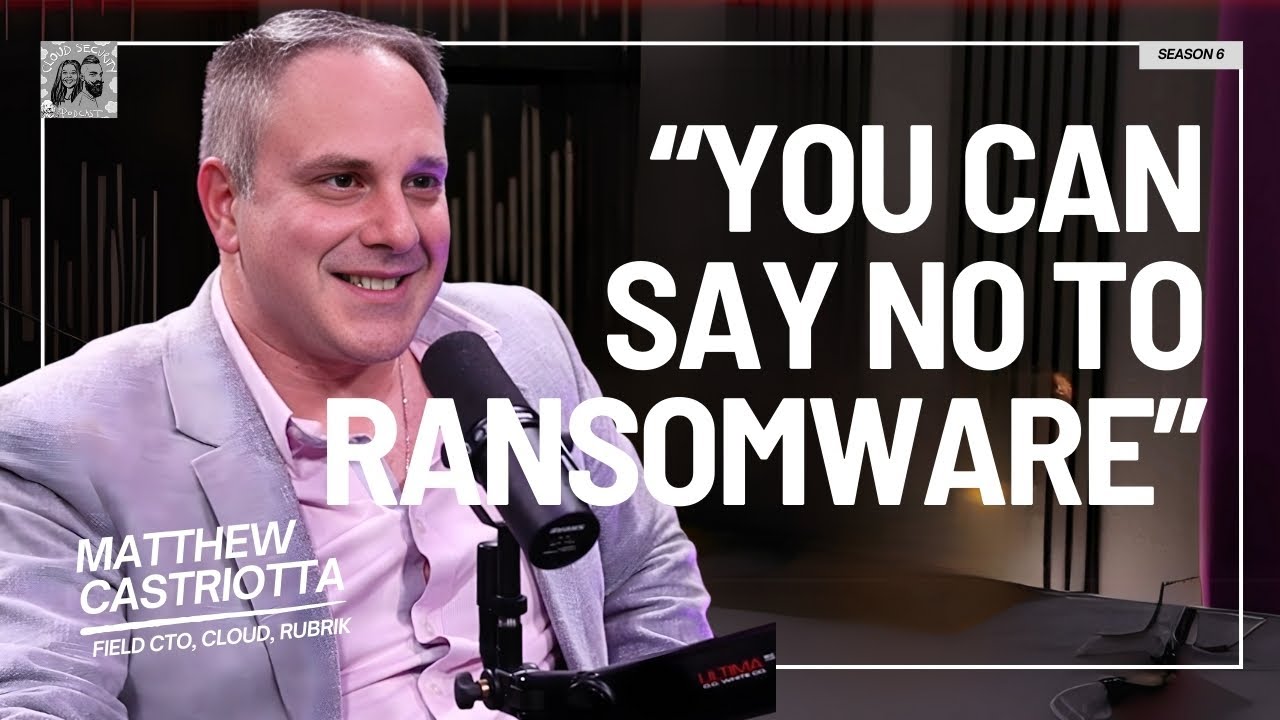
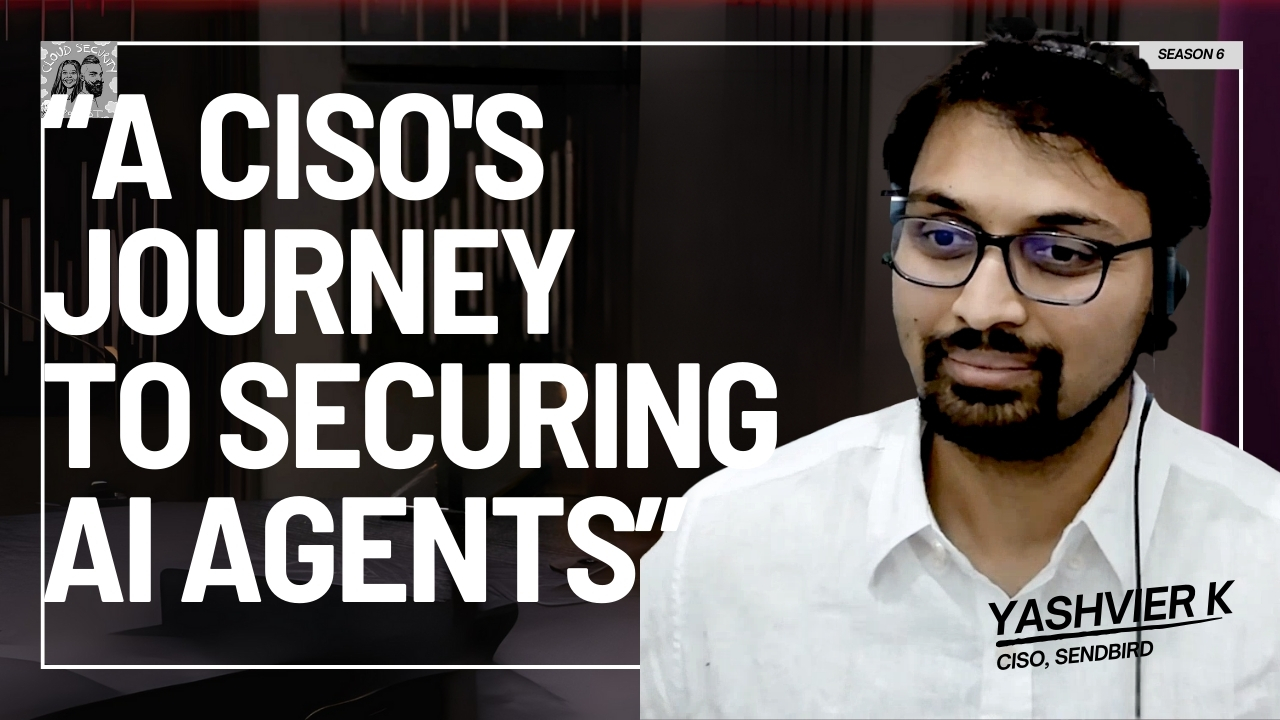
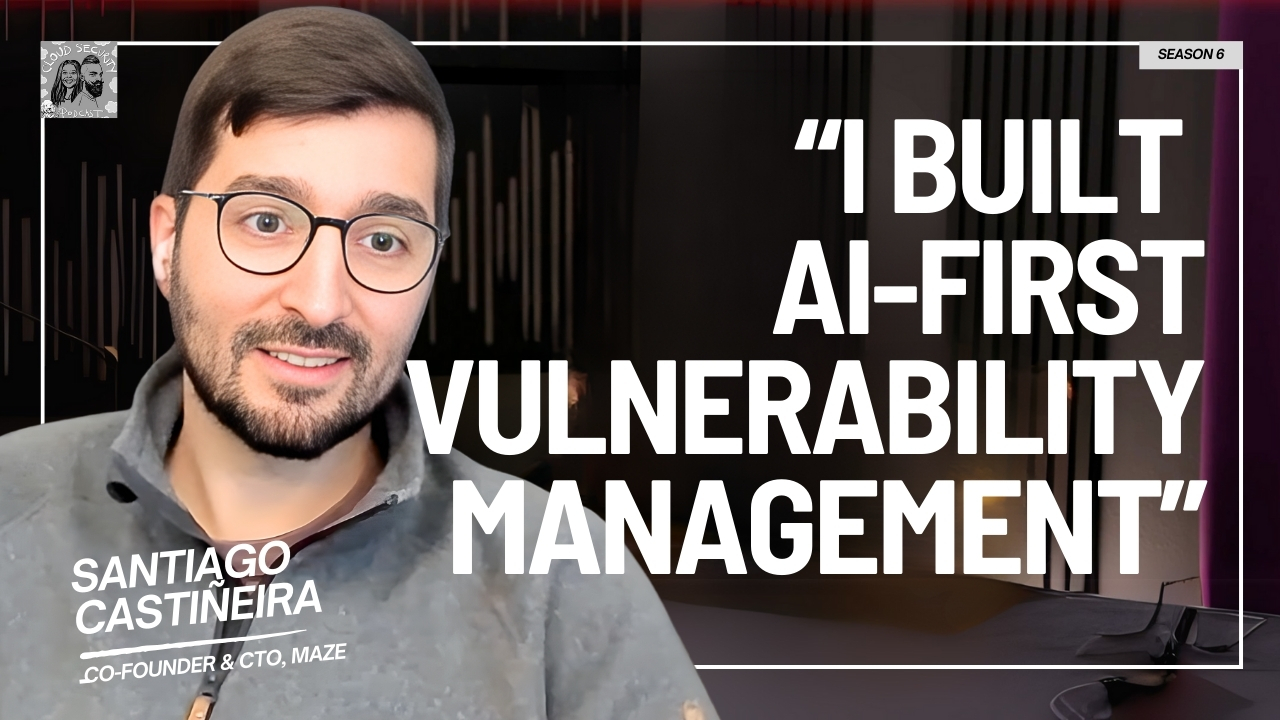
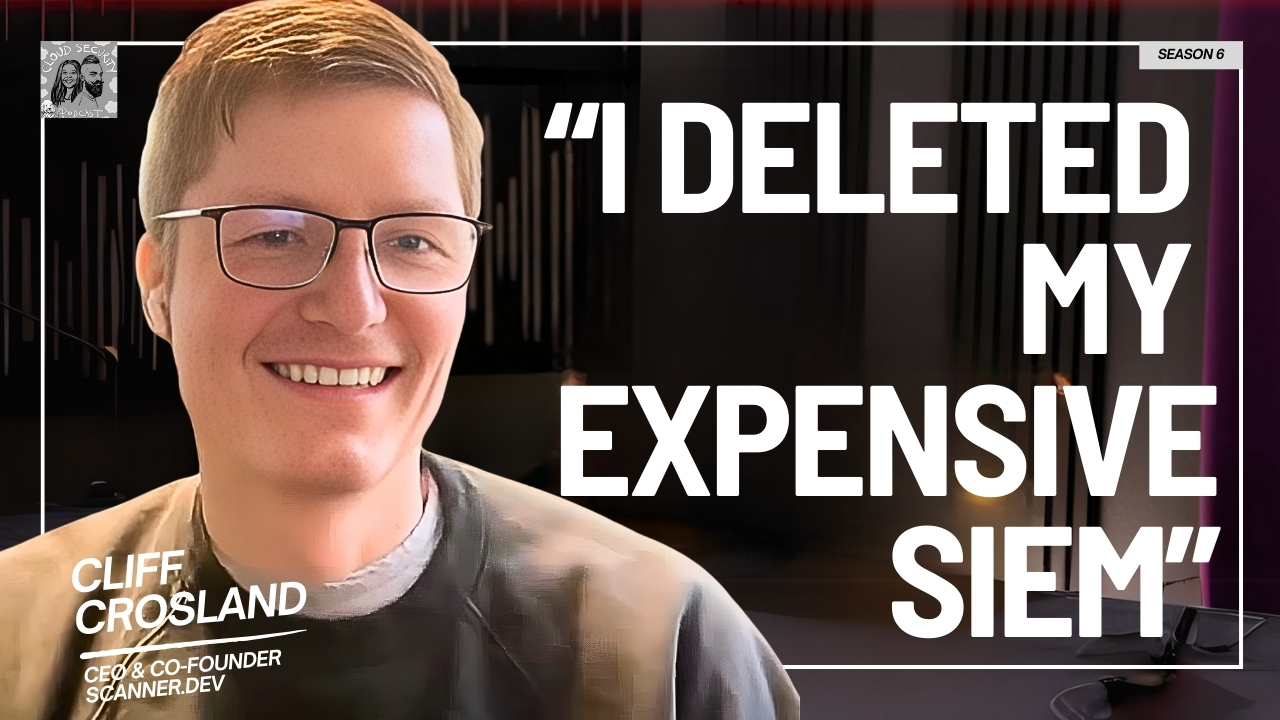
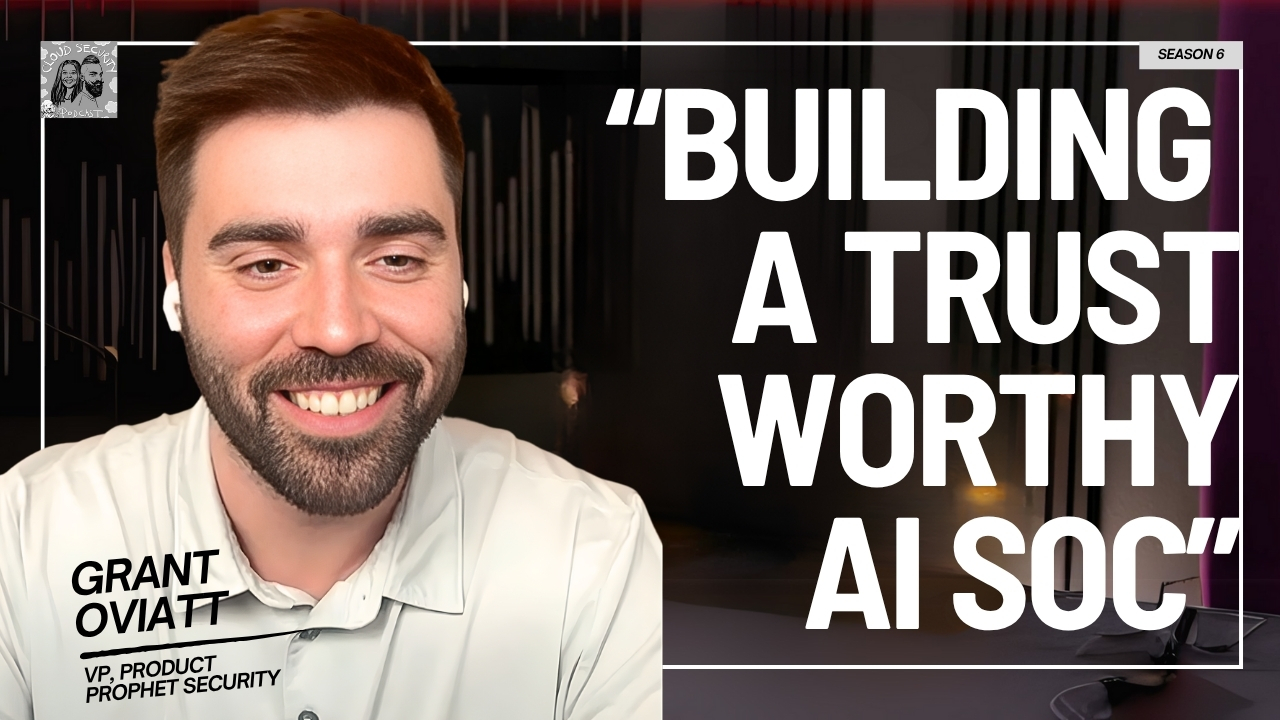
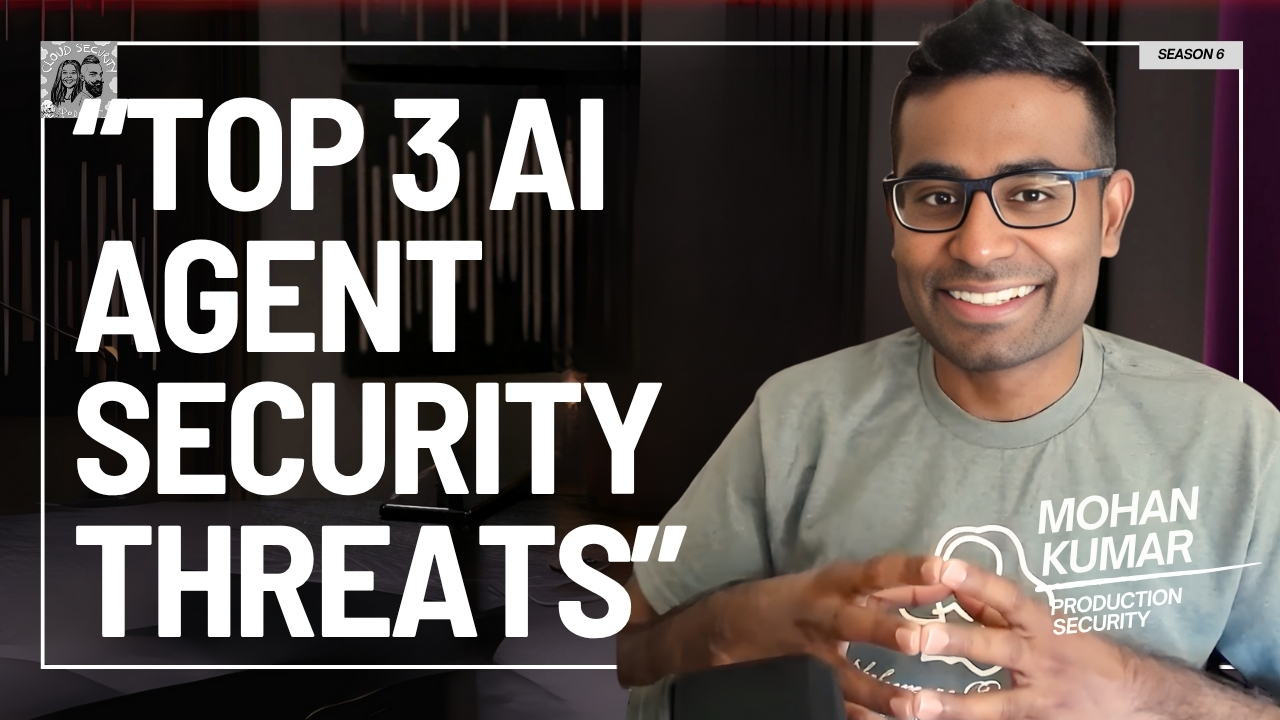
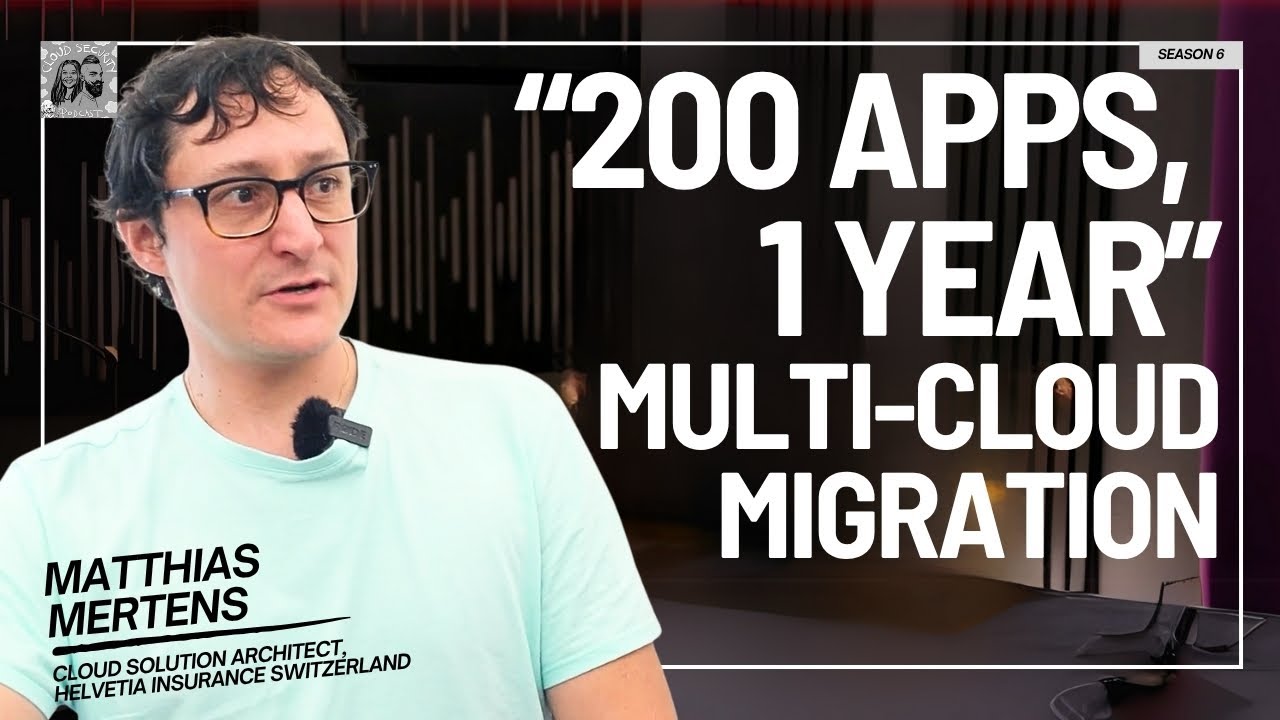
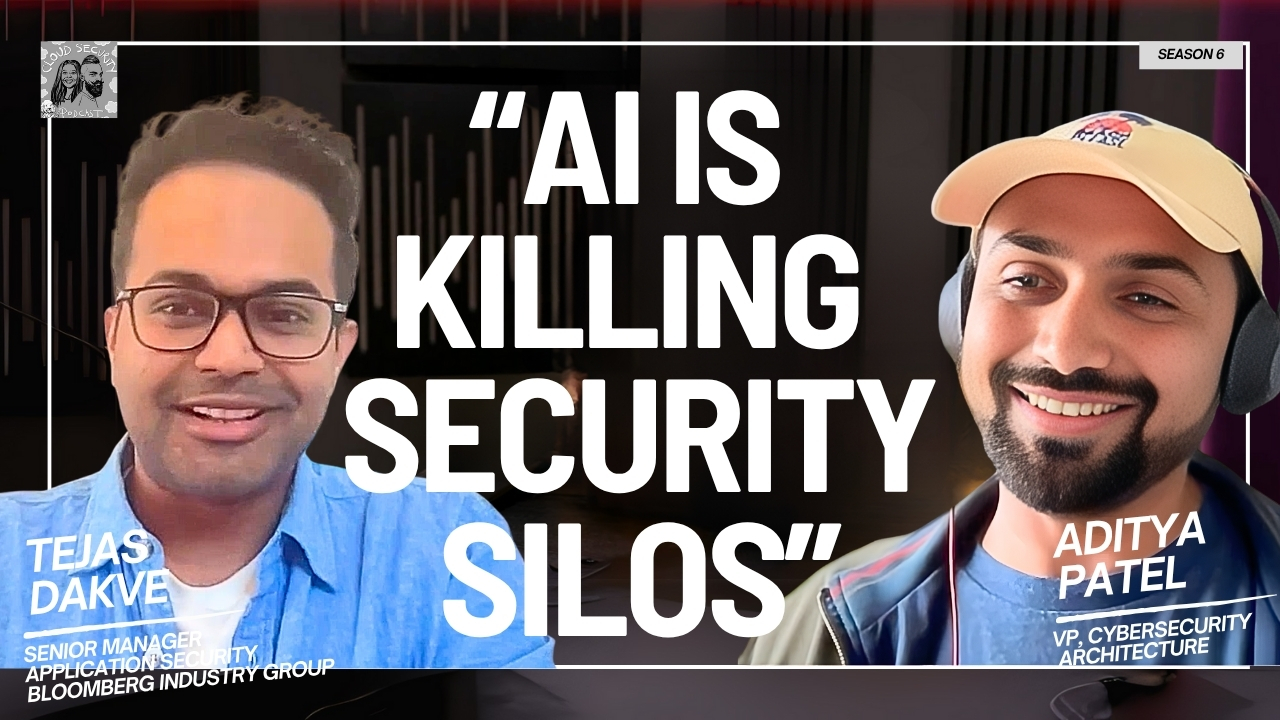
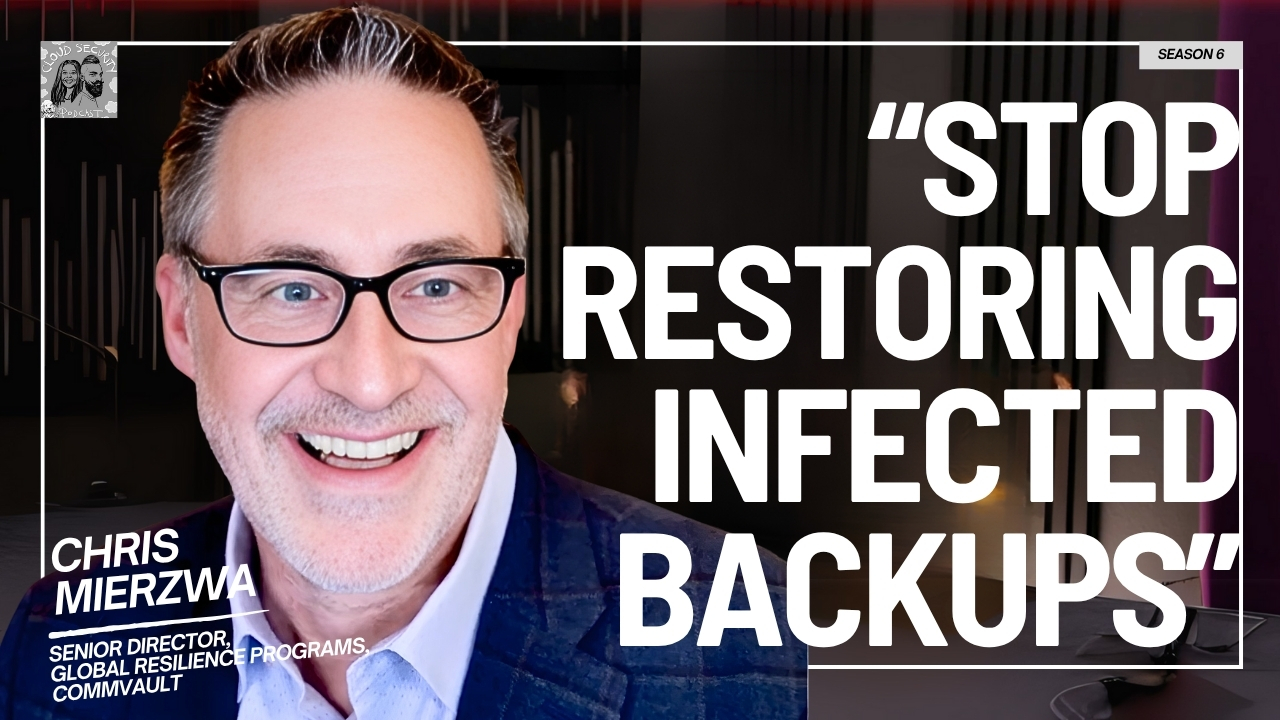
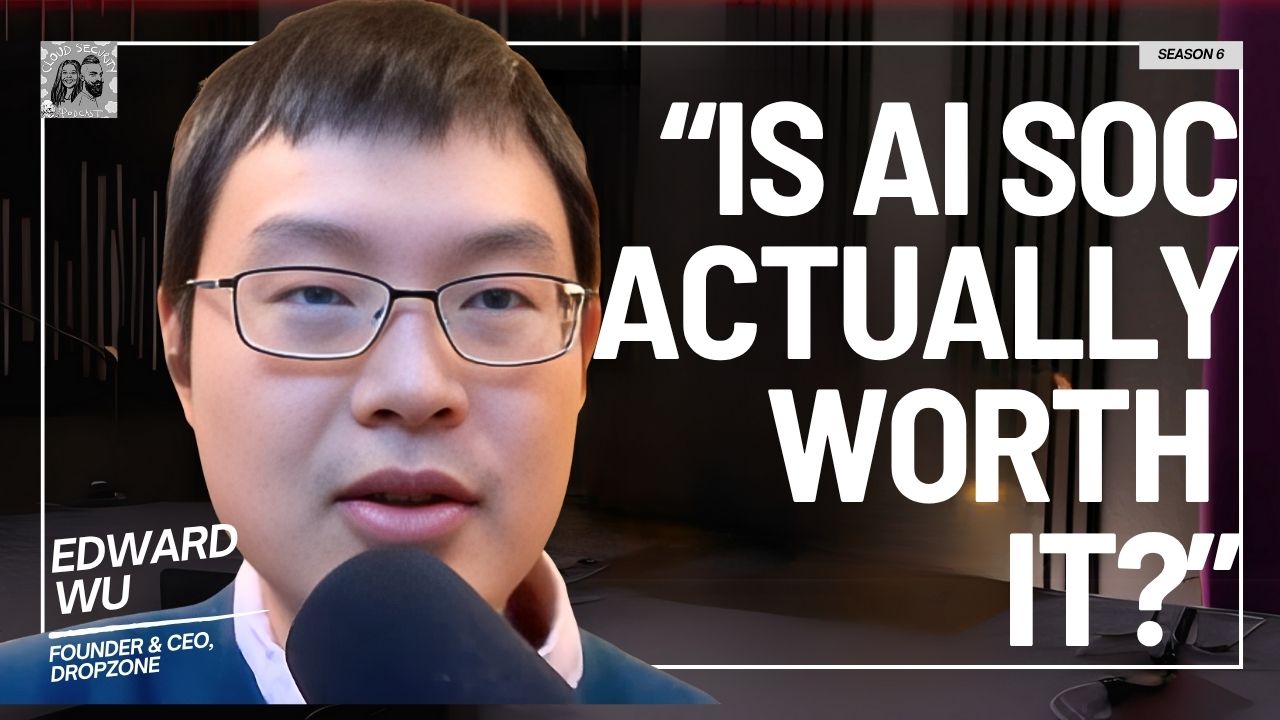
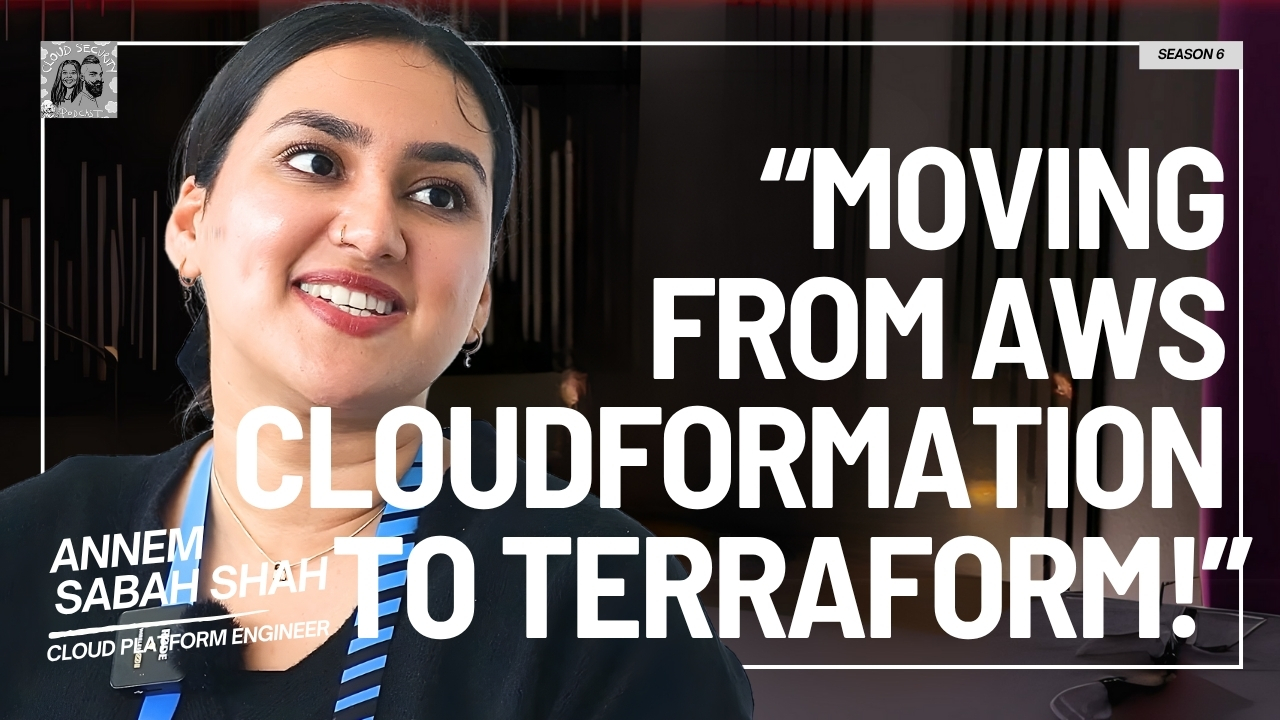
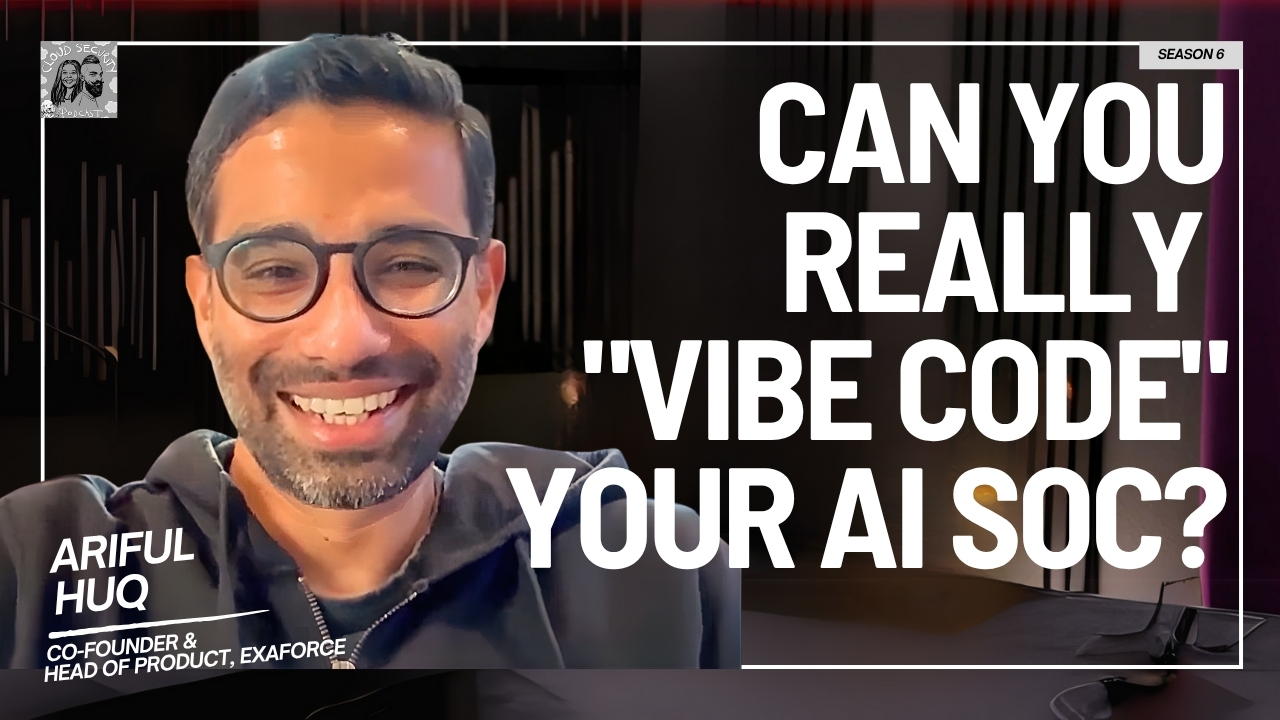
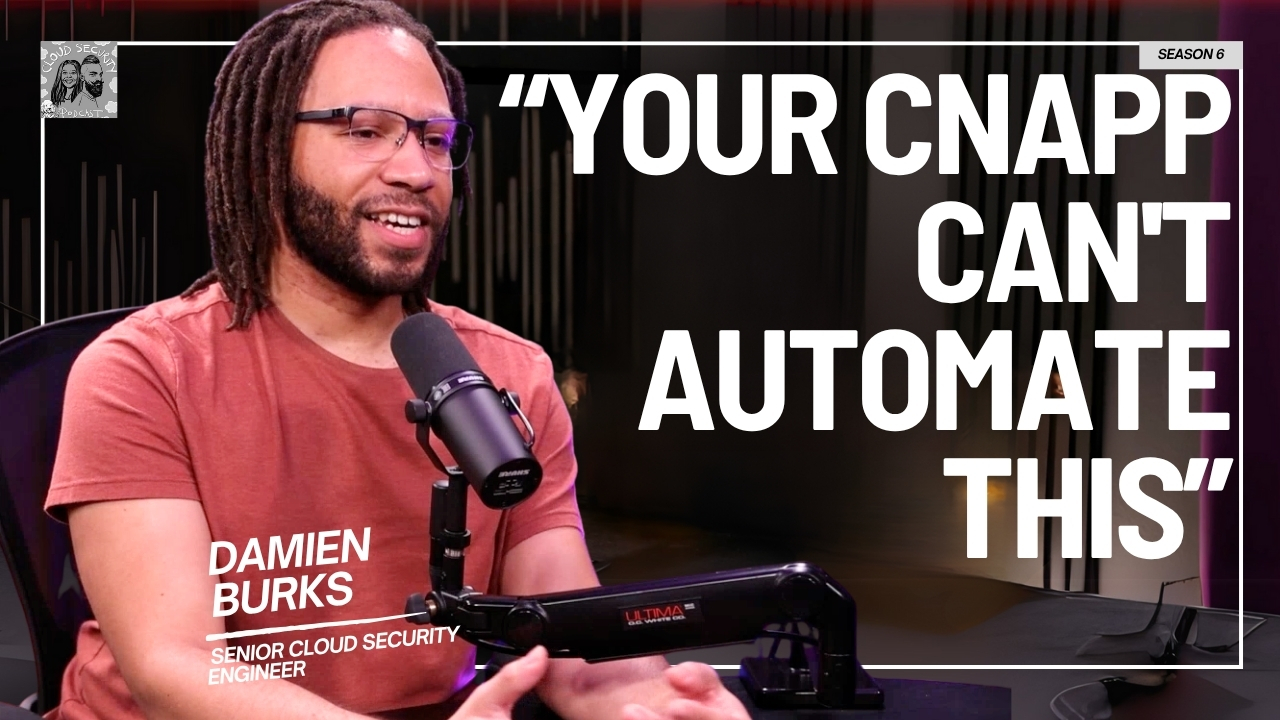
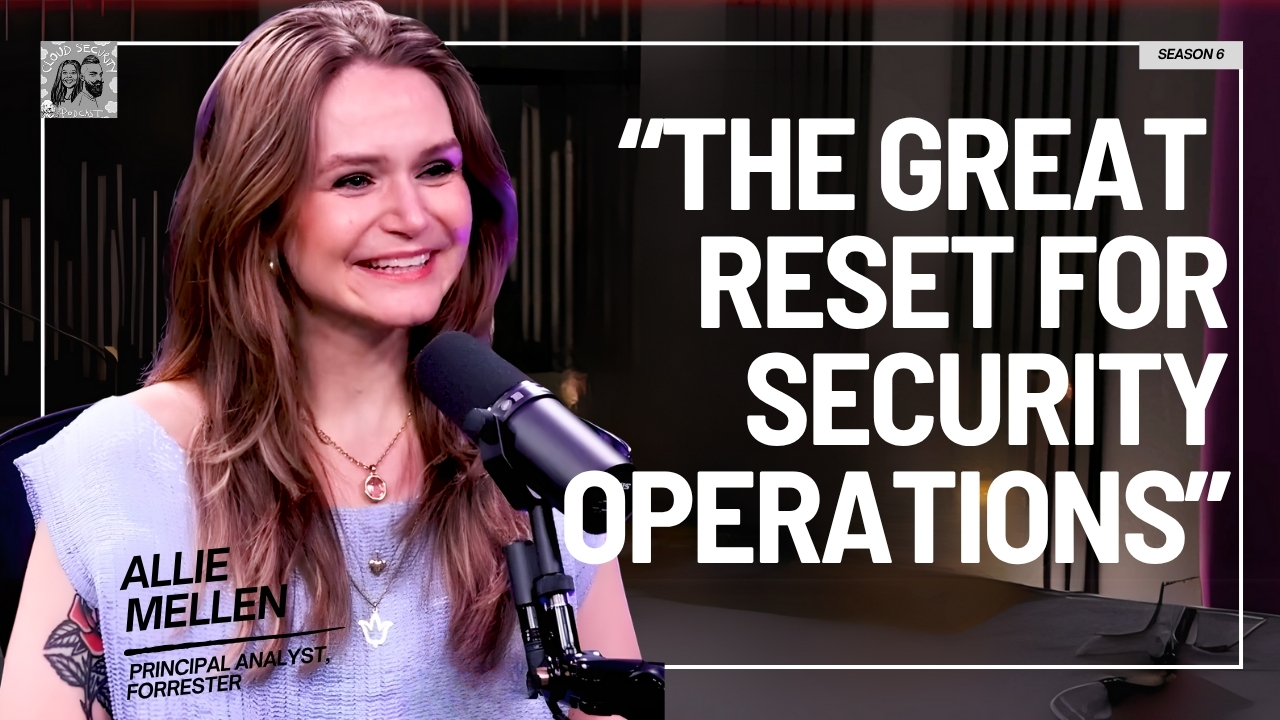
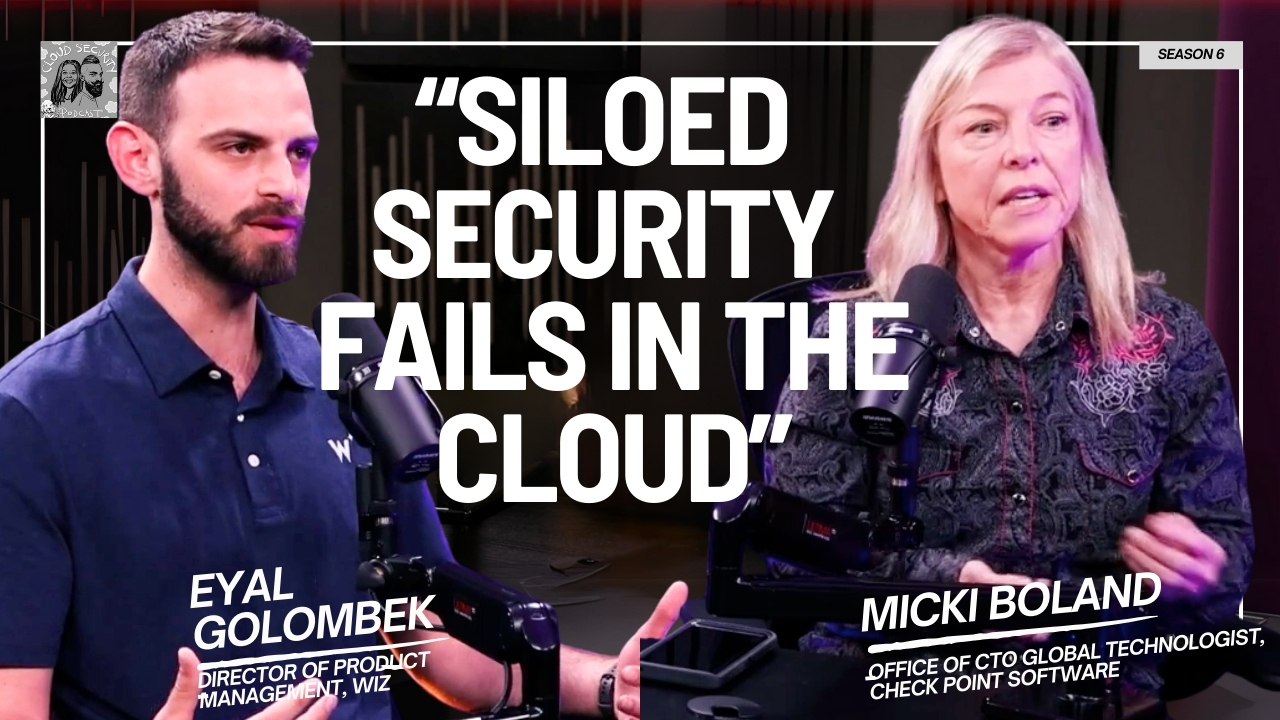
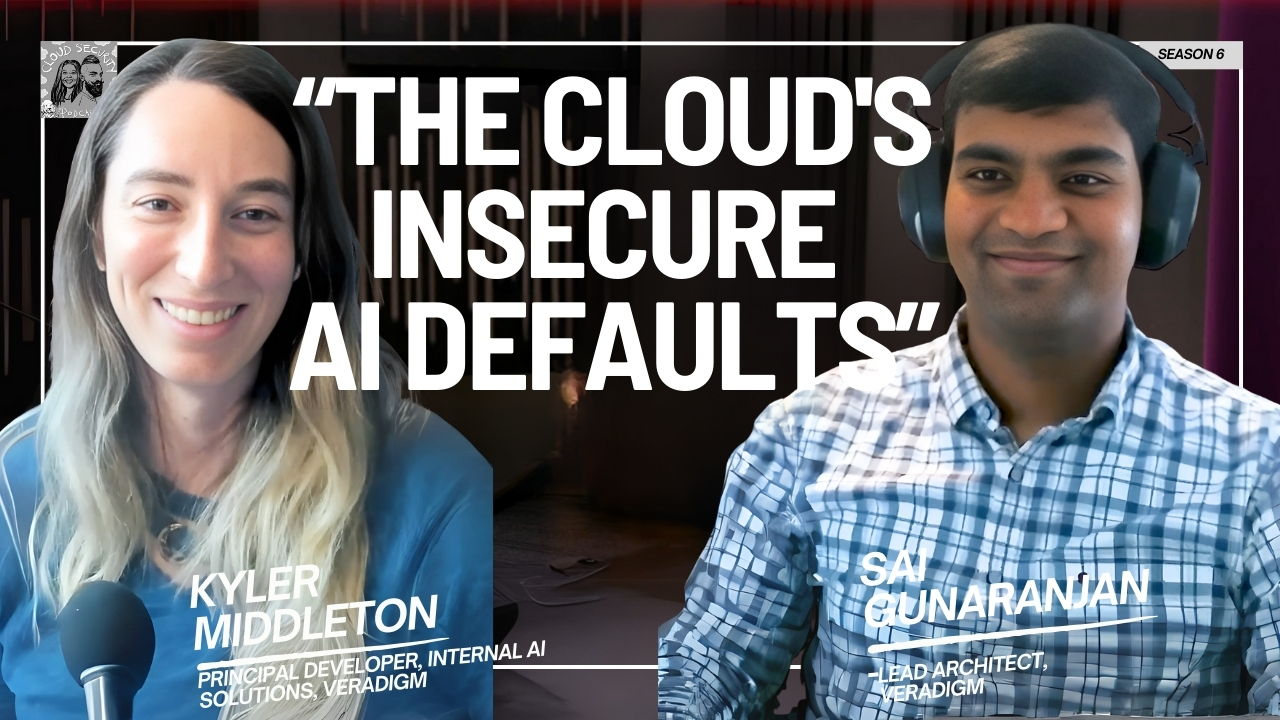


.jpg)
